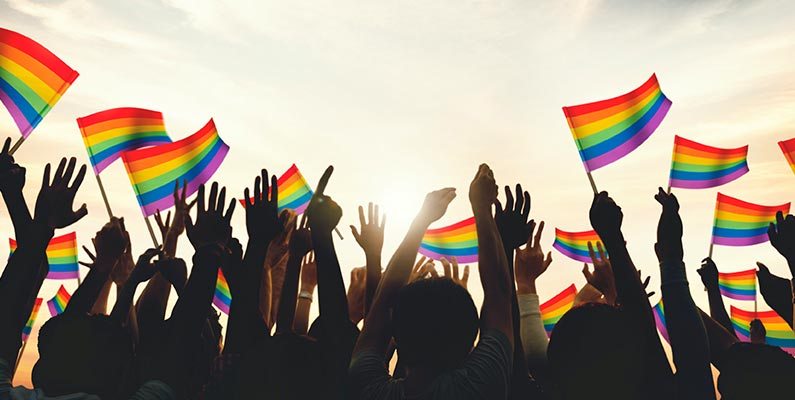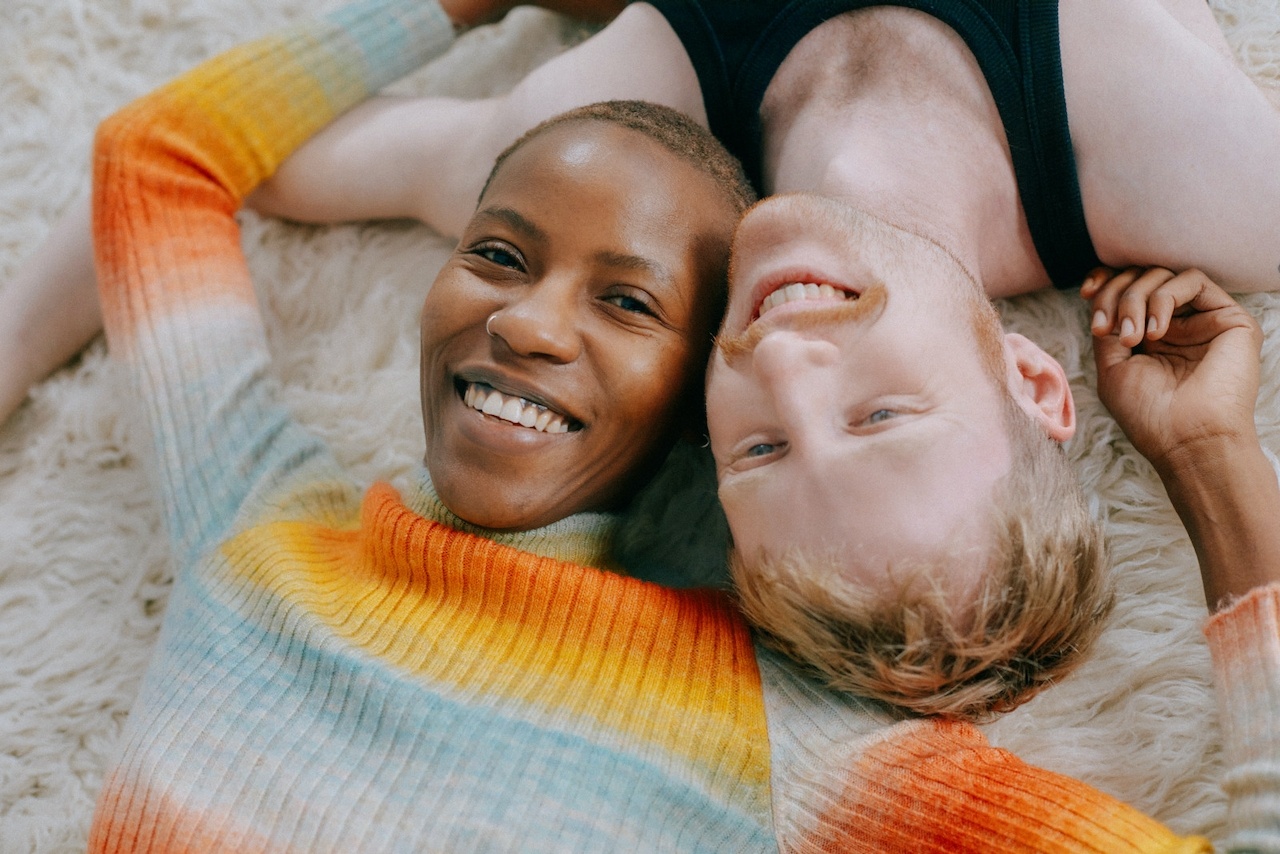Stereotypes Articles
Recent
Popular
Stereotypes are generalizations about a group of people. Whether a person is facing discrimination based on race, religion, age, gender or sexual orientation, stereotypes can lead to prejudices. People begin to assume that all people of a particular group behave in a specific way or look the same. Stereotypes are dangerous to our society because they don’t account for individuality. Each human being has an identity that doesn’t relate exclusively to being a member of a group. Here you will find articles stereotypes and how they impact our society. You will read about how you may actively participate in stereotyping people without realizing it. If you’ve experienced racism, religious discrimination, or any other marginalization, it can be painful and make you feel like you’re not a part of the society. You’ll read about ways to deal with being stereotyped in various settings and how you can cope.
More Stereotypes articles
Explore more on Stereotypes
Medically reviewed by Julie A. Dodson, MA, LCSW
A stereotype can be defined as a widely held, fixed image of a particular person, place, or thing. These generalizations are typically based on preconceived ideas that aren’t necessarily true, and for this reason, they can be harmful. Grouping people into categories based on their appearance, culture, background, or any other distinguishing feature can minimize their individuality. Stereotypes can also be dangerous, leading to prejudice and discrimination in some cases. In this article, we’ll explore the impact of stereotypes on individuals and society and discuss the ways in which online therapy may be helpful for those experiencing these impacts.
The etymology of the word “stereotype”
The word stereotype is generally believed to have come from the French adjective “stéréotype,” which derives from the Greek words “stereos,” meaning "firm and solid," and “typos,” meaning “impression.” When these words are put together, they generally mean “solid impression," which can be seen as the literal definition of the word "stereotype."
Stereotypes can negatively impact many different groups of people: cultures, races, religions, genders, and so on. It can be important to learn how to identify a stereotype and to think critically when you encounter one.
Explicit vs. implicit stereotypes
When discussing stereotypes, it can be helpful to know the difference between those that are explicit and those that are implicit. Both types can be equally harmful, but one may be harder to spot than the other. Let’s explore what sets them apart.
Explicit stereotypes
Explicit stereotypes are normally those that are intentional. When someone verbalizes or admits to an idea they hold about a particular group of individuals, they may be explicitly stating the stereotypes they believe. Left unchecked, these generalizations can escalate, potentially leading to discrimination.
When people hold explicit stereotypes, they may make prejudiced comments, engage in unfair pay practices within a business setting, or distribute work assignments based on someone’s gender, ethnicity, or another distinguishing trait.
Implicit stereotypes
While explicit stereotypes are usually readily apparent, an implicit stereotype tends to be under the surface. These are generally things that people think but don’t say, and they often happen automatically and unintentionally. In contrast to explicit stereotypes, an implicit stereotype is typically subconscious.
This can mean that a person isn’t necessarily aware that they’re judging others when an implicit stereotype comes to mind. When someone holds implicit stereotypes, they might make various assumptions. For example, they may assume that their child’s teacher will be female or expect someone of a certain race to excel at sports over school.

Can stereotypes be helpful?
Stereotypes are typically overgeneralizations about a group of individuals. While they can be harmful, they may also serve a purpose in some situations. For example, stereotypes can be used to sort information in the brain. This can help people make decisions more quickly and easily.
Some stereotypes can also keep people safe. In general, society assumes that young people tend to make riskier decisions and shouldn’t have access to a car until they’re 16 or alcohol until they’re 21 (or 18, in some countries).
While some young people might be responsible enough to drive a car or drink alcohol before reaching these milestones, it would likely be difficult to gauge who is prepared and who isn’t through a single standardized test. In this way, stereotypes may serve a vital purpose.
When are stereotypes harmful?
Stereotypes may not be innately harmful, but they can be when they affect our judgment or interactions with others or cause us to make assumptions about people.
When we attempt to understand the world through categorization, we can make the mistake of trying to predict how people might act based on just one of their features. For example, assuming that someone of a particular religion will behave a certain way could cause you to miss out on the person they really are. Because everyone is a unique human being, it can be important to recognize that few people fit into a cookie-cutter mold.
While it may be tempting and even natural to look at things stereotypically, it can be possible to modify your way of thinking with effort and time. Acknowledging that people are individuals who are not solely defined by the group that they may or may not fit categorically can make a difference in the lives of those affected by stereotypes.

Benefits of online therapy
If you’ve been personally affected by stereotypes, talking about your experiences in online therapy could be helpful. Speaking about sensitive issues can be daunting, but online therapy platforms like BetterHelp may make it easier to open up and be vulnerable with a therapist. Because you can choose to use video conferences, phone calls, or online chat during sessions, you might find that you feel more comfortable in a virtual setting rather than face-to-face. Feeling at ease during therapy can be crucial and allow you to experience more healing over time.
Effectiveness of online therapy
Stereotypes can have detrimental effects, potentially leading to concerns like low self-esteem, poor confidence, and self-doubt. Research has found that online therapy interventions can be powerful instruments in overcoming these consequences. In one study, researchers assessed an online group talk therapy intervention and found that it generally improved participants’ lonely feelings and increased their self-esteem. These outcomes were usually still intact at a follow-up six weeks later.
Takeaway
Although great strides have generally been made, stereotypes can still be prominent today. Learning how to recognize different stereotypes and understanding their impact can be instrumental in challenging and overcoming them. As stereotypes lose their grip within society, a more tolerant, inclusive world can be built in their place. The articles in this section may be useful resources for learning more about stereotypes and understanding how to challenge them. Connecting with an online therapist could also be beneficial if you’re seeking personalized guidance, support, and encouragement as you work to overcome the harmful effects of being stereotyped.


